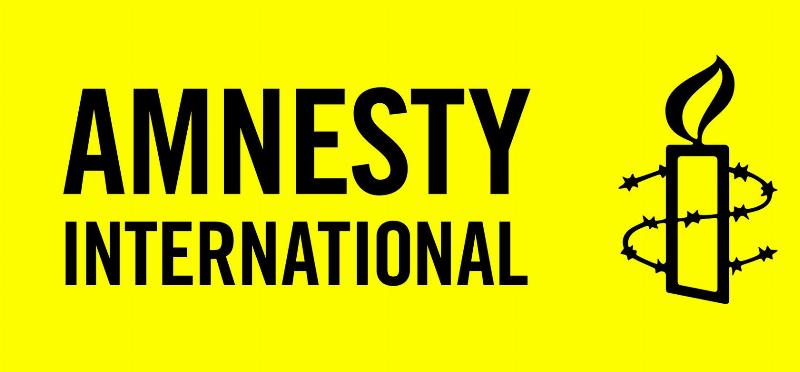


Some murderers are so twisted, so evil, so sick, so vile, that the only way society can deal with them is the death penalty. Their crimes shock the conscience.
But in recent decades. NGOs such as Amnesty International have argued that life in prison is an acceptable substitute to the death penalty, and the only humane solution.
Back in the 1980s, when letter-writing was common, I used to correspond with an Amnesty International activist in Japan about the death penalty, and recall that life imprisonment was presented as the only non-barbaric alternative. Amnesty has largely won that argument in the hearts and minds of the Western public as the death penalty is exceedingly rare now, even as horrendous crimes go on and on.
But now we learn why that's a bad idea compared to a swift trial and execution for obvious crimes.
According to Andrew Stiles, writing at the Washington Free Beacon:
Here's how CNN reported the death of Walid Daqqa: "Terminally ill Palestinian prisoner dies after 38 years in Israeli custody." That was only slightly better than Amnesty International's description of Daqqa as "a 62-year-old Palestinian writer" whose death in prison was "a cruel reminder of Israel's disregard for Palestinians' right to life."
Several paragraphs later, CNN explains that Daqqa was "seen as a terrorist" after his conviction for orchestrating the 1984 abduction, torture, and murder of Moshe Tamam, a 19-year-old Israeli soldier. Indeed, that doesn't seem like an entirely unfair characterization, especially given the horrific details of the case, which do not appear in the CNN article.
"Walid Daqqah and his collaborators gouged out Moshe's eyes and cut off parts of his body, including castrating him," the Times of Israel recounted in 2023 after Amnesty International demanded the terrorist's release from prison. "Lastly, they took Moshe to an olive grove and shot him dead. His corpse was left there to be found."
American Thinker Deputy Editor Olivia Murray wrote commentary on this sickening development two days ago here.
Another NGO, the anti-death penalty Death Penalty Information Center promotes "life without parole" a "sentencing alternative" and "reform" measure to the death penalty.
Amnesty's advocacy for it is less clear, with those letters advocating life without parole for psychopathic killers from the Japanese guy I still have somewhere, to a reference, at least on the Irish Amnesty International site, of opposition to life without parole as well as the death penalty. There also is a call on their main site for ending life without parole for "children" who slaughter others. Amnesty and others have advocated life sentences in the past for other psychopathic killers as an "alternative" to the death penalty.
In 2017, in response to President Obama halting the death penalty on a killer of two and making it a life sentence, Amnesty wrote:
The death penalty is incompatible with basic principles of human rights, and an executive decision to remove anyone from death row by commutation rather than by execution is to be welcomed.
But now with this case of this sadistic killer for the Palestinian "cause" we can see how they've morphed into a group that thinks even long prison sentences are a problem, which for the rest of us is a new reason to favor the death penalty.
Israel gave this torture-murderer of an innocent young teenager a life sentence instead of the death penalty he deserved.
Now Amnesty is calling Israel the bad guy for imprisoning the monster at all.
Responding to the death in custody of Walid Daqqah, a 62-year-old Palestinian writer who was the longest-serving Palestinian prisoner in Israeli jails after having spent 38 years imprisoned, Erika Guevara-Rosas, Amnesty International’s Senior Director for Research, Advocacy, Policy and Campaigns said:
“It is heart-wrenching that Walid Daqqah has died in Israeli custody despite the many calls for his urgent release on humanitarian grounds following his 2022 diagnosis with bone marrow cancer and the fact that he had already completed his original sentence.
Sure, the guy served 38 years. He got two years tacked onto his sentence for smuggling cell phones into the prison creating a security risk, so two more it was, based on his own bad decisionmaking, which is where Amnesty's mendacious claim that Israel kept him in jail beyond his original sentence came from. Amnesty of course didn't mention that little detail any more than the mentioned all the grotesque tortures that were perpetuated onto the Israeli teenager before he was murdered.
Because the fact of the matter is, he was only in prison with a long sentence because he wasn't executed as his crimes would dictate.
Now that memories have faded for all except his family about what he did, we learn that Israel was cold and hard and cruel for keeping this killer in jail like he was Nelson Mandela, making him a beacon for the Palestinian cause who had been done wrong by Israel.
Seems this happens a lot now. A state like Israel tries to do good by giving long prison sentences for crimes that deserve the death penalty and as time passes, these killers eventually become beacons and saints for all mankind, lionized by groups like Amnesty. The crime is forgotten, the miserable husk that's left is deified, and the state that extends that kind of mercy is vilified.
Since there's no way to stop this dynamic, maybe it's time to bring back swift and certain executions for obvious crimes of this kind to prevent this kind of dishonest mythmaking that does so much damage to society and incentivizes more monstrous crimes. Execute these killers swiftly and scrap the life-sentence alternative if for nothing else to ensure justice is done for the victims. Deifying killers and condemning the justice system for going soft on them damages society just as surely as murders do.
Thanks, Amnesty, for giving us a new reason to favor the death penalty.
Image: logo, via Wikimedia Commons // fair use, public domain
